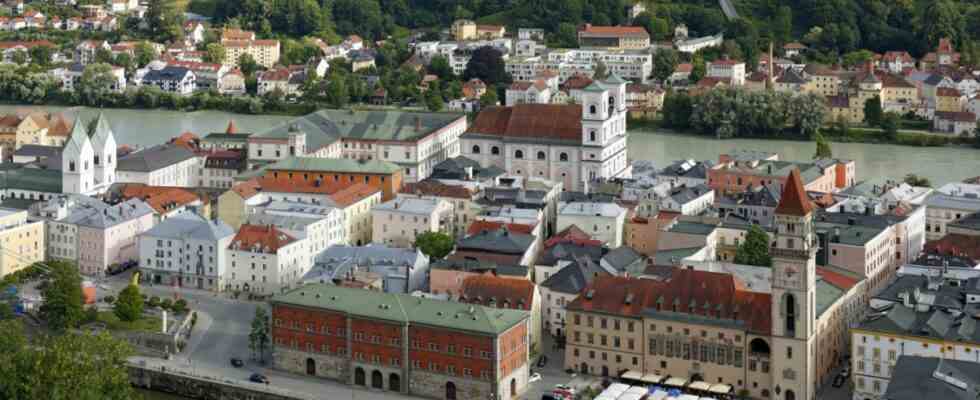For a year now, Passau has been discussing what fits into the cityscape. Should it be easier in the future to install a photovoltaic system on the roof of an old town and to expand a roof truss? Or to install an elevator to make life easier for the elderly? What about chairs and umbrellas: still only in beige, white, wood and metal? Or even a seat made of plastic? A sacrilege for ÖDP city councilor Urban Mangold, he wants to preserve the old. The Passau SPD, which is the mayor of the city, is more open to the new.
On Monday evening, the city council was due to vote on a new cityscape statute that is more in the interests of the innovators. But now the discussion about Passau’s face is entering the next round. Mayor Jürgen Dupper (SPD) announced that the item would be taken off the agenda because there was still some need for clarification. On the one hand, that came as a surprise. On the other hand, a look at the draft resolution actually raised the question of how it differed from the old statutes at all. Not much was left of the SPD’s original plans to soften the rules.
Since 2020, the Passau SPD has been preparing to relax the design specifications for the old town. In November 2021, the urban development committee passed a majority vote on a new version of the cityscape statute. Before the draft is submitted to the city council for approval, the Bavarian State Office for the Preservation of Monuments (BLfD) should issue an opinion on it. Not much was left of the original design. “The BLfD picked the proposal apart,” says Mangold. And in fact, the preservationists reject most of the projects. Such as allowing roof terraces or multiple dormers by default. Many things, such as elevators, are also already possible, provided that monument protection is observed.
According to the statement, expansion requests are regularly granted if they are in line with monument protection. Exceptions are very rare. A new statute would not change that. It would only result in even greater administrative effort, because citizens are more or less invited to apply for expansions that cannot be approved anyway.
At least when it comes to solar cells on old town roofs, there was agreement recently. The BLfD had recommended only allowing solar cells where they cannot be seen from the public space and the most important vantage points. In addition, the systems should visually match the roof and meet the latest standards. But you wouldn’t have to change the city statute for that either. “There has been a photovoltaic system on the old town hall for more than ten years. Because you can’t see it on the town hall,” says Mangold.
According to the BLfD, the old statute leaves a lot of leeway compared to other cities such as Regensburg or Freising. “The fact that these statutes have been maintained for more than 35 years without any major need for change shows their fundamental quality,” the statement reads. Even the administration made a similar statement in August. “The city planner is still of the opinion that the city statutes should be left in the same form. Top floor extensions for residential purposes have also been possible in the past. An improvement cannot be identified from the suggestions.” Or in Mangold’s words: “You should stamp the draft.”
And what about the plastic chairs? A look at other cities shows that when it comes to the question of whether visitors should put their buttocks on wood or plastic, opinions differ. The chairs are no longer specifically mentioned in the BLfD statement, nor in the draft resolution. For Urban Mangold they are “a crime” anyway.

